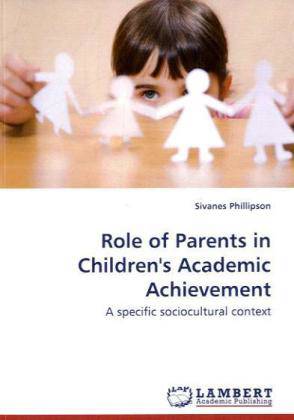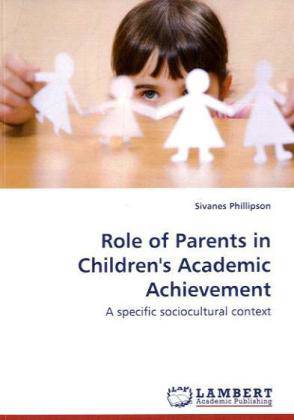
Door een staking bij bpost kan je online bestelling op dit moment iets langer onderweg zijn dan voorzien. Dringend iets nodig? Onze winkels ontvangen jou met open armen!
- Afhalen na 1 uur in een winkel met voorraad
- Gratis thuislevering in België vanaf € 30
- Ruim aanbod met 7 miljoen producten
Door een staking bij bpost kan je online bestelling op dit moment iets langer onderweg zijn dan voorzien. Dringend iets nodig? Onze winkels ontvangen jou met open armen!
- Afhalen na 1 uur in een winkel met voorraad
- Gratis thuislevering in België vanaf € 30
- Ruim aanbod met 7 miljoen producten
Zoeken
Role of Parents in Children's Academic Achievement
A specific sociocultural context
Sivanes Phillipson
Paperback | Engels
€ 77,95
+ 155 punten
Omschrijving
The relationship between intellectual ability and academic achievement is well established in the scientific literature. According to Vygotsky (1978), however, the path between a child's cognitive ability and their academic achievement is influenced by the important people in their lives. This book presents a research, which tested directly the controversial idea that parents play a crucial role in influencing their children's academic achievement because of the way that parents communicate their sociocultural values and practices. Evidence is demonstrated using an approach that employs both advance statistical methods including structural equation modelling and case profiles from interviews of parents and their children. In the light of the findings presented in this book, parents are encouraged to maximise their children's academic achievement through the creation of a mediation structure that directly communicates their beliefs and academic expectations. This long overdue book is useful for all students and researchers from the broad area of education and psychology, and most of all, for parents who care.
Specificaties
Betrokkenen
- Auteur(s):
- Uitgeverij:
Inhoud
- Aantal bladzijden:
- 300
- Taal:
- Engels
Eigenschappen
- Productcode (EAN):
- 9783838301495
- Verschijningsdatum:
- 3/06/2010
- Uitvoering:
- Paperback
- Formaat:
- Trade paperback (VS)
- Afmetingen:
- 152 mm x 229 mm
- Gewicht:
- 439 g

Alleen bij Standaard Boekhandel
+ 155 punten op je klantenkaart van Standaard Boekhandel
Beoordelingen
We publiceren alleen reviews die voldoen aan de voorwaarden voor reviews. Bekijk onze voorwaarden voor reviews.











